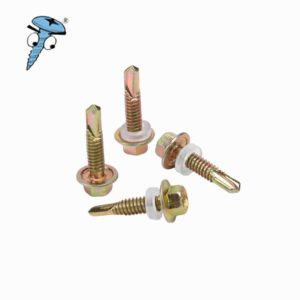Brass and Bronze Fasteners: A Durable Fastening Option

Fasteners are almost in every part of our systems, structures, and daily products we use. Its wide essentiality in various industries surely brings a demand for quality. Fasteners being flexible components have a variety of materials available with unique properties that can suit specific applications. Some of the best materials for fasteners are brass and bronze, each element is composed of a remarkable combination of strength, corrosion resistance, and aesthetic appeal. Thus, making them more popular for applications in construction, manufacturing industries, and more.
Defining Fastener Materials: Brass and Bronze
Brass
Brass is an alloy composed of copper and primarily zinc. The zinc offers increased strength, ductility, and corrosion resistance to the base copper material. The most common types of brass fasteners are yellow brass, red brass, and naval brass.
- Yellow brass is the standard and most common type of brass. This material is an alloy that is ductile, easy to work, and corrosion-resistant. Yellow brass fasteners are often used in marine applications because of their ability to withstand salt water.
- Red Brass is stronger and more resistant to corrosion compared to yellow brass. The red brass fasteners have medium alloys popular for architectural applications where durability is important.
- Naval brass has a high-strength alloy with extreme resistance to corrosion and saltwater. Naval brass fasteners are often used in marine applications like off-shore plants, ships, docks, etc.
Applications of Brass Fasteners
- Plumbing and Sanitary Fittings: Brass fasteners are mainly used in plumbing components like valves, faucets, and connectors.
- Electrical Connectors: Brass fasteners are also utilized in electrical components and connectors.
- Decorative Hardware: Brass fasteners offer an aesthetic appeal in decorative hardware such as doorknobs, handles, and hinges.
Bronze
Bronze is an alloy composed of copper and tin with varying ratios of other elements like aluminum, silicon, or phosphorus to create distinct properties. Bronze has exceptional wear resistance, corrosion resistance, and strength. The most common types of bronze fasteners are phosphor bronze, silicon bronze, and aluminum bronze.
- Phosphor bronze is strong and resistant to corrosion which is often used in marine applications and electricals since it has a good conduction for electricity.
- Silicon bronze is also strong and ductile which is resistant to corrosion and wear. This material is often used in architectural or industrial applications.
- Aluminum bronze is a lightweight yet strong alloy that has resistance to corrosion and wear. This material is often used in marine and industrial applications.
Applications of Bronze Fasteners
- Marine Industry: Bronze fasteners are resistant to seawater which is often used in marine hardware like propellers, ship fittings, and underwater fasteners.
- Aerospace: Bronze fasteners are used in critical applications of aerospace for their high strength and reliability.
- Bearing and Bushings: Bronze fasteners are also used in bearings and bushings where their properties in wear resistance and load-bearing come as a great advantage.
Properties and Advantages of Brass and Bronze Fasteners
- Corrosion Resistance: Both brass and bronze fasteners offer a remarkable resistance to corrosion which is ideal for harsh environmental conditions. This property of brass and bronze material ensures the longevity of structures and objects fastened together.
- Strength and Durability: Brass offers good strength especially in its alloyed forms while bronze imparts excellent strength and durability. Bronze can withstand heavy loads and harsh conditions which is suitable for critical applications in marine, aerospace, and construction industries.
- Appearance: Brass and bronze fasteners exhibit distinctive golden and reddish-brown hues. This color makes an aesthetic appeal to applications that require decorative qualities such as architecture and interior design.
- Good Workability or Ease of Machining: Brass and bronze fasteners are both alloys that are relatively easy to work with. The material offers ease in machining by simplified manufacturing process which allows more workability in designs or customization.
Brass and bronze fasteners have distinct properties that carry a combination of strength, corrosion resistance, and aesthetic appeal. Their versatile use in industries of construction, marine, aerospace, and interior design proves their excellent characteristics and reliability. As technology continues to advance, brass and bronze are two materials considered to have remarkable and durable solutions for fastening. Therefore they are undoubtedly one of the best fastener materials for a wide range of applications.
Need wholesale brass and bronze fasteners for your project? Visit Prince Fastener Manufacturing Co., Ltd. We carry a wide range of fasteners in types, sizes, shapes, and materials. Purchase wholesale custom fasteners at factory prices with us! Contact us for more details.